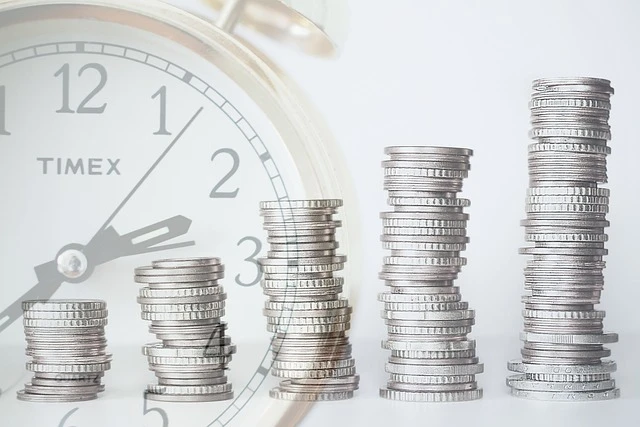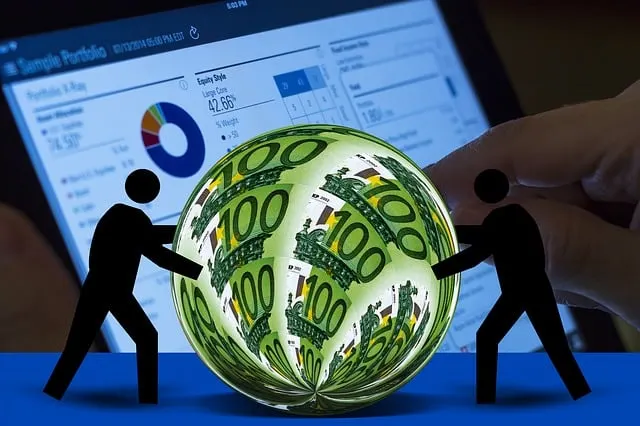If you’ve got $10,000 and you’re ready to invest, let’s talk. I’m going to break down exactly how I’d allocate that money if I were starting from scratch—based on what I’ve actually done with my own investments. Five strategies. No fluff. Straight to the point.
1. The Foundation: S&P 500 Index Fund (20%)
First, I’d put around 20% into an index fund that tracks the S&P 500—a benchmark of the 500 largest U.S. companies.
This is your foundation. It’s stable, reliable, and historically a steady grower. Think of it like planting the base layer of your investment garden.
You’ve got multiple ways to invest here:
- ETFs: VOO, SPY, SPLG, FXAIX
- Mutual fund version: VFIAX (Vanguard)
They all essentially do the same thing: track the same companies, perform similarly, and grow at the same rate. The key difference is fees and which platform you prefer.
VOO, for instance, has a low expense ratio of 0.03%—you’re only paying about $3 annually for every $10K invested. That’s basically nothing.
What’s inside these funds? Big tech names dominate: Apple, Microsoft, Amazon, NVIDIA, Google, Meta—the companies shaping the world economy.
2. The Accelerator: NASDAQ 100 (50–70%)
Next, I’d go a little bolder. I’d allocate 50 to 70% of the money to a fund that tracks the NASDAQ 100, which includes the top 100 tech-focused companies in the U.S.
Why? Because I’m still young, and I can afford more risk for potentially higher returns.
Some options:
- ETFs: QQQ, QQQM, FTQQ, ONEQ
Take QQQ, for example. It includes names like Apple, Tesla, NVIDIA, Alphabet—yes, there’s overlap with the S&P 500. But QQQ is much more concentrated, and that’s the point.
Over the past 10 years, QQQ returned 400%. The S&P 500? Around 200%. Bigger risk, bigger reward—but yes, higher volatility. In 2022, the NASDAQ dropped 33%, while the S&P was down just 19%.
QQQ’s expense ratio is 0.20%, or $20 per year on $10K. Not bad for the performance potential.
This fund is my wealth accelerator. It gives my portfolio some serious horsepower.
3. The Wild Card: Crypto (10%)
Let’s get a little spicy. I’ve been investing in crypto since 2011—and while I’ve made great returns, I only allocate 10% of my portfolio to it.
Why? Because crypto is extremely volatile. It’s not for everyone. But if you want massive upside, this is where it lives.
The safest route for beginners? Coinbase. It’s the top U.S. crypto exchange—easy to use, regulated, and publicly traded.
If you're new to crypto, start with Bitcoin and Ethereum. These are your blue chips. Then, maybe dabble in medium-risk assets like Ripple.
Avoid meme coins and random projects unless you’re ready to watch your money evaporate.
Crypto return stats speak for themselves:
- Since 2011, Bitcoin has grown over 20,000,000%
- Annual average return? 230%
- Compare that to the NASDAQ’s 541% total return over the same period
This is the steroid injection in the garden. Use it responsibly.
4. The Stabilizer: Dividend-Paying ETFs (10–20%)
Now let’s add some balance. I’d invest 10–20% into funds that hold dividend-paying companies. These are stable, reliable stocks that generate passive income regularly—monthly or quarterly.
Ideal if:
- You’re closer to retirement
- You want steady income
- You don’t love market volatility
I’m still in growth mode, so I personally put less here, but if I were older or needed income soon, I’d go heavier.
Options include:
- ETFs: SCHD, VIG, VYM, SDY
Take SCHD as a strong example:
- Expense ratio: 0.06%
- Recent dividend yield: around 3.5–4%
- Past year return: 11%
- 3-year return: ~4%
If you invested $10K, you’d earn around $350–$400 a year in dividends. Not huge growth, but that consistent cash flow? Very handy when markets get choppy.
This part of the portfolio keeps the cash flowing so you’re never asset rich but cash poor.
5. The Multiplier: Invest in Yourself
Here’s the truth: if your goal is to turn $10K into $100K, the fastest path isn’t through stocks or crypto. It’s through your income.
The fifth investment? Yourself.
That means:
- Learn a high-value skill
- Take online courses
- Level up your career
- Start a side hustle
- Read about money
Why? Because your income and savings rate are way more powerful than any return from the market when you’re just starting out.
Example:
- Saving $12K a year with a 5% return gets you to $100K in 7 years. 84% of that comes from savings, only 16% from returns.
- Saving just $7K a year at an 11% return takes 9 years. 63% from savings, 37% from returns.
See the pattern? Until you hit that first $100K, your income matters more than your investments.
So go learn. Upskill. Educate yourself on how money works. And when you're ready, I’ve got a video that breaks down exactly how to go from zero to $100K by 2025.
That’s how I’d split $10,000.
- 20% S&P 500
- 50–70% NASDAQ 100
- 10% Crypto
- 10–20% Dividend ETFs
And whatever’s left—you put it into your brain
That’s the ultimate ROI.
Good Reads

Learn how staking works, how you can profit, what are the risks, and what to avoid.

The easiest method to generate a passive crypto income with crypto and make money at home

Top 5 passive income streams that can make your money work for you

If you've ever felt like personal finance is overwhelming, you're not alone

Did you know that 50% of Americans believe they're in the middle class? But here’s the kicker: most of them are wrong.

I went from growing up broke to having seven figures in my 20s

These are seven of the best investments and purchases you can make in your 20s to quickly build wealth.

These 13 books underrated ones completely changed how I saw the world and I'm pretty positive they're going to do the same for you

Learn the six habits that are stoping you from becoming rich and how to change them

Learn how to invest in REITs effectively, avoid common mistakes, and build a diversified real estate portfolio with long-term passive income potential.
